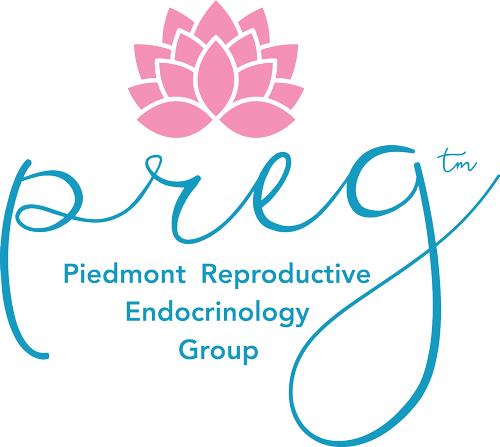As PREG fertility specialists, we often encounter patients who have questions about how their menstrual cycle relates to their fertility. Understanding your menstrual cycle is not just about tracking periods; it’s a vital aspect of assessing your reproductive health and fertility potential. In this post, we’ll delve into the various phases of the menstrual cycle and what they can reveal about your fertility.
The Menstrual Cycle Overview
A typical menstrual cycle lasts between 21 and 35 days, though variations are common. The cycle can be divided into four primary phases: the menstrual phase, the follicular phase, ovulation, and the luteal phase. Each phase plays a crucial role in preparing your body for potential pregnancy.
- Menstrual Phase: This phase begins on the first day of your period and lasts about 3 to 7 days. It marks the shedding of the uterine lining when pregnancy doesn’t occur. The characteristics of your menstrual flow during this time — its duration, heaviness, and associated symptoms — can provide insights into your hormonal balance and overall reproductive health. For example, excessively heavy periods could indicate conditions like fibroids or endometriosis, both of which can impact fertility.
- Follicular Phase: After menstruation, the follicular phase kicks in, lasting until ovulation. During this time, the body produces Follicle Stimulating Hormone (FSH), which stimulates the ovaries to mature follicles (which contain eggs). If your cycle is irregular, it might indicate hormonal imbalances that can affect ovulation and fertility. Regular cycles often indicate a healthy hormonal environment conducive to conception. Additionally, lifestyle factors such as stress, diet, and exercise can influence this phase, so maintaining a healthy lifestyle is crucial for optimal fertility.
- Ovulation: Ovulation typically occurs around the midpoint of the cycle. A surge in Luteinizing Hormone (LH) triggers the release of a mature egg from the ovary. This is the most fertile window in your cycle, usually lasting 24 to 48 hours. Signs of ovulation include changes in cervical mucus (which becomes clear and stretchy), mild cramping, and increased libido. Monitoring these signs can help identify your fertile window, increasing your chances of conception. In addition, basal body temperature (BBT) charting can help confirm ovulation; a slight rise in BBT often indicates that ovulation has occurred.
- Luteal Phase: Following ovulation, the luteal phase lasts about 10 to 14 days. During this phase, the ruptured follicle transforms into the corpus luteum, which produces progesterone to thicken the uterine lining in preparation for a fertilized egg. If pregnancy does not occur, progesterone levels drop, leading to menstruation. A short luteal phase (less than 10 days) can hinder implantation and may require further evaluation. Ensuring that the luteal phase is adequate is critical for a successful pregnancy.
How Your Cycle Impacts Fertility Health
Understanding these phases is crucial, but what specific aspects of your cycle can indicate your fertility status?
- Cycle Regularity: Consistency in cycle length can suggest a well-functioning hormonal system. Irregular cycles can indicate conditions like Polycystic Ovary Syndrome (PCOS), thyroid disorders, or other hormonal imbalances that can affect fertility. Tracking your cycle over several months can provide valuable data for discussions with your healthcare provider.
- Menstrual Symptoms: Heavy periods, severe cramping, or other symptoms like endometriosis can signal underlying issues that may impact fertility. It’s essential to discuss these symptoms with your PREG fertility doctor to determine if further evaluation is necessary. Understanding the severity and nature of these symptoms can help identify whether there are structural issues, such as uterine abnormalities, that may need to be addressed.
- Ovulation Confirmation: Tracking ovulation through methods such as ovulation predictor kits, basal body temperature charting, or monitoring cervical mucus can help you understand your fertility. If you’re not ovulating regularly, it may be a sign of anovulation, which can impact your ability to conceive. In cases of confirmed anovulation, further hormonal assessments might be necessary.
- Luteal Phase Length: A luteal phase shorter than 10 days may indicate insufficient progesterone production, affecting implantation and early pregnancy maintenance. If you suspect a short luteal phase, it’s important to discuss this with your PREG fertility specialist. In some cases, hormone supplementation or lifestyle adjustments can help lengthen this phase.
When to Consult a PREG Fertility Specialist
If you’ve been tracking your cycle and notice irregularities or have been trying to conceive for over a year (or six months if you’re over 35), it’s time to consult a PREG fertility specialist. We can conduct thorough evaluations, including hormone testing, ultrasounds, and other imaging studies, to identify any underlying issues and discuss personalized treatment options.
The Role of Lifestyle and Nutrition
It’s also worth noting that lifestyle factors can significantly impact your menstrual cycle and overall fertility. Regular exercise, a balanced diet, and stress management techniques can help regulate your cycle. Certain nutrients, like folic acid, omega-3 fatty acids, and antioxidants, also play essential roles in reproductive health. Being mindful of your lifestyle choices can enhance your fertility potential.
Your menstrual cycle is more than just a monthly occurrence; it’s a window into your reproductive health. By understanding the phases of your cycle and their implications for fertility, you can take proactive steps in your family planning journey. If you have concerns about your cycle or fertility, don’t hesitate to reach out to PREG for guidance. Remember, early intervention can make a significant difference in your path to conception. Embrace the journey of understanding your body and empower yourself with the knowledge needed to make informed decisions about your reproductive health.






